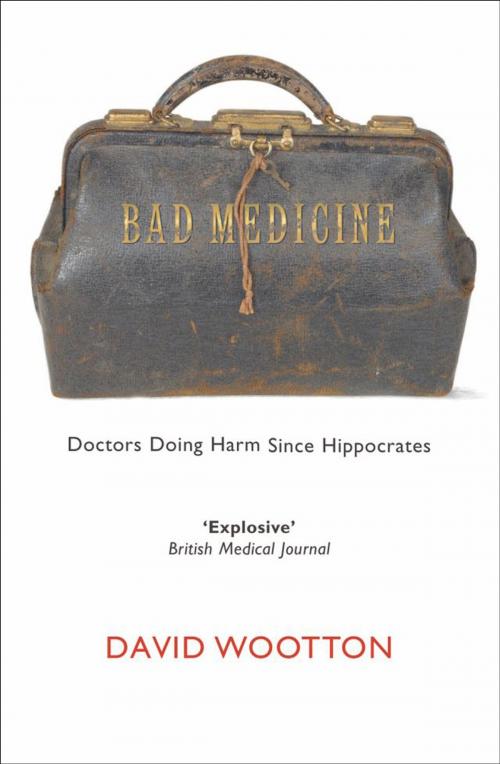Bad Medicine
Doctors Doing Harm Since Hippocrates
Nonfiction, Health & Well Being, Medical, Reference, History| Author: | David Wootton | ISBN: | 9780191579561 |
| Publisher: | OUP Oxford | Publication: | November 22, 2007 |
| Imprint: | OUP Oxford | Language: | English |
| Author: | David Wootton |
| ISBN: | 9780191579561 |
| Publisher: | OUP Oxford |
| Publication: | November 22, 2007 |
| Imprint: | OUP Oxford |
| Language: | English |
Just how much good has medicine done over the years? And how much damage does it continue to do? The history of medicine begins with Hippocrates in the fifth century BC. Yet until the invention of antibiotics in the 1930s doctors, in general, did their patients more harm than good. In this fascinating new look at the history of medicine, David Wootton argues that for more than 2300 years doctors have relied on their patients' misplaced faith in their ability to cure. Over and over again major discoveries which could save lives were met with professional resistance. And this is not just a phenomenon of the distant past. The first patient effectively treated with penicillin was in the 1880s; the second not until the 1940s. There was overwhelming evidence that smoking caused lung cancer in the 1950s; but it took thirty years for doctors to accept the claim that smoking was addictive. As Wootton graphically illustrates, throughout history and right up to the present, bad medical practice has often been deeply entrenched and stubbornly resistant to evidence. This is a bold and challenging book - and the first general history of medicine to acknowledge the frequency with which doctors do harm.
Just how much good has medicine done over the years? And how much damage does it continue to do? The history of medicine begins with Hippocrates in the fifth century BC. Yet until the invention of antibiotics in the 1930s doctors, in general, did their patients more harm than good. In this fascinating new look at the history of medicine, David Wootton argues that for more than 2300 years doctors have relied on their patients' misplaced faith in their ability to cure. Over and over again major discoveries which could save lives were met with professional resistance. And this is not just a phenomenon of the distant past. The first patient effectively treated with penicillin was in the 1880s; the second not until the 1940s. There was overwhelming evidence that smoking caused lung cancer in the 1950s; but it took thirty years for doctors to accept the claim that smoking was addictive. As Wootton graphically illustrates, throughout history and right up to the present, bad medical practice has often been deeply entrenched and stubbornly resistant to evidence. This is a bold and challenging book - and the first general history of medicine to acknowledge the frequency with which doctors do harm.















